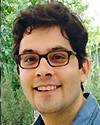Using the Hydro-(geo)Chemical Software PHREEQC for Applications to Hydro-Metallurgy
Sponsorship
MetSoc and TMS
Instructor
Nicolas Jacquemet, Independent Geochemical Researcher/Consultant
This course has been cancelled.
Course Overview
The hydro-metallurgical processes’ unit operations where water-mediated chemical reactions occur can be numerically simulated by hydro-(geo)chemical programs such as PHREEQC. Nicolas Jacquemet offers to give a training course for hydro-metallurgists who want to use this software for their application studies.
How to model the following (physico-)chemical processes could be addressed:
- Metal-bearing solid dissolution into an aqueous solution (leaching/lixiviation step)
- Metal-bearing solid (redox) precipitation from an aqueous solution (solution concentration & purification and metal recovery steps)
- Ion exchange (on resin surface) (solution concentration & purification step)
The goal of this course is for attendees to discover the possibilities offered by hydro-(geo)chemical softwares to simulate operations of hydro-metallurgical processes.
Course Outline
The course will alternate “theory” i.e., presentation of the implemented laws and capabilities of the program, and practical/illustrative examples/exercises with an emphasis on the latest point. The course will essentially include practical examples that can be used later as templates for attendees’ problems.
Topics to be Covered
- Aqueous speciation and solid phase(s) saturation state with respect to aqueous solution
- Concentrated aqueous solutions: activity coefficient models
- Building-up of speciation diagrams (species concentration vs. pH diagram, Eh vs. pH (Pourbaix) diagram,…)
- Mass transfer in solid(s)-aqueous liquid phase (heterogeneous) systems
- Precipitation (/dissolution) of solids at thermodynamic equilibrium or following kinetical laws
- Ionic exchange
- Thermodynamic databases
- Program limitations
Learning Objectives
After having attended the course, the participants will be informed on the PHREEQC capabilities that can be used for their application cases. They will learn the basics to implement their first models. Also, they will be informed on the program limitations and especially on the “quality” of the data contained in the program-associated thermodynamic databases.
Course Instructor

Nicolas Jacquemet holds a Ph.D. in gas-water-solid geochemistry and has worked in industry, at the French Geological Survey (BRGM), and at university. Then, from 2014, Jacquemet developed his own research company and has worked for academia, industry, and research agencies. Over his career, he conducted gas-water-solid interactions geochemistry studies through two complementary approaches: experimentation+characterization and numerical modeling. This last approach was implemented by using both reactive transport and hydro-(geo)chemical softwares like PHREEQC; this led to the (co-)authoring of 10 papers in which such softwares were used. Since the beginning of his career, Jacquemet has worked on the following thematic programs: acid gas (H2S+CO2) and CO2 geological storage (Carbon Capture & Storage [CCS]), CCS by Mineralization (CCSM), radwaste (geological) storage, hydrothermal metallogeny, hydro-metallurgy, hydrogen geological storage, (archaeo-)metallurgical slags characterization and groundwater organic contamination. He is the (co-)author of 29 written contributions, including at least 13 peer-reviewed papers. More information is available at
his website.
Registration
This course has been cancelled. Registration is no longer available for this event.
Course Registration Rates *
| Registering As |
Advanced
Before June 26 |
Standard
On or After June 26 |
| Attendee |
$665 |
$740 |
| Student |
$325 |
$370 |
*Please note that registration rates do not include 13% tax.
Sponsorship Acknowledgements
This course is made possible thanks to The Metallurgy and Materials Society (MetSoc) of the Canadian Institute of Mining, Metallurgy and Petroleum (CIM) and The Minerals, Metals & Materials Society (TMS).